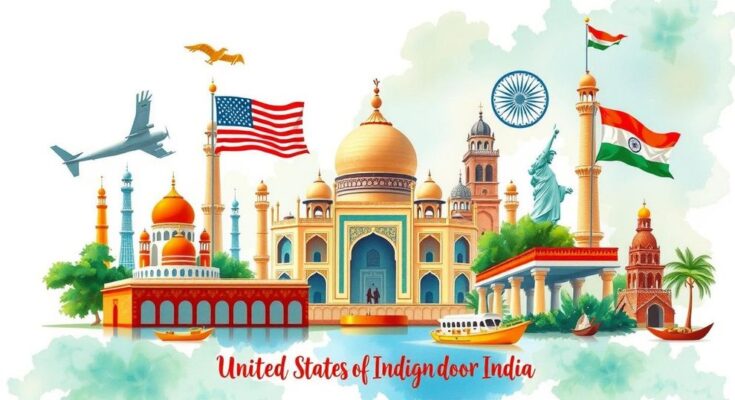Tulsi Gabbard’s visit to India as DNI underscores the strong U.S.-India relationship, bolstered by the leaders’ friendship. Gabbard’s talks included key areas such as defense and counterterrorism, and her participation in the Raisina Dialogue emphasized global cooperation and leadership in achieving peace.
Tulsi Gabbard, the U.S. Director of National Intelligence, recently visited India, emphasizing the long-standing relationship between the United States and India. This relationship has been significantly strengthened through the friendship between Prime Minister Narendra Modi and President Donald Trump. Gabbard’s trip marks her initial multi-nation visit as DNI, which included stops in Hawaii, Japan, Thailand, India, and France.
During her visit to India, Ms. Gabbard engaged in several bilateral discussions, notably with Prime Minister Modi. The official statement highlighted that these interactions accentuate the enduring U.S.-India partnership fostered by their respective leaders. Important topics of conversation included intelligence-sharing, defense strategies, counterterrorism initiatives, and transnational threats.
Moreover, Ms. Gabbard participated in the Raisina Dialogue, where she delivered keynote remarks focused on collaborative efforts aimed at achieving President Trump’s vision for a peaceful and prosperous society. In her address, she emphasized the necessity of strong leadership and a comprehensive understanding of global challenges.
Gabbard remarked, “Securing peace through strength requires strong leadership with a clear-eyed and realistic understanding of global challenges and opportunities, a commitment to fostering cultural and economic ties that reduce the likelihood of an escalation to conflict, and a dedication to reinforcing mutual interests.”
In conclusion, Tulsi Gabbard’s visit to India underscores the solid U.S.-India relationship, which is reinforced through the collaborative efforts of their leaders, Modi and Trump. Her discussions on critical security issues and her participation in the Raisina Dialogue demonstrate a commitment to enhancing bilateral ties. Gabbard’s insights highlight the importance of strategic collaboration in achieving peace and shared goals.
Original Source: www.thehindu.com




